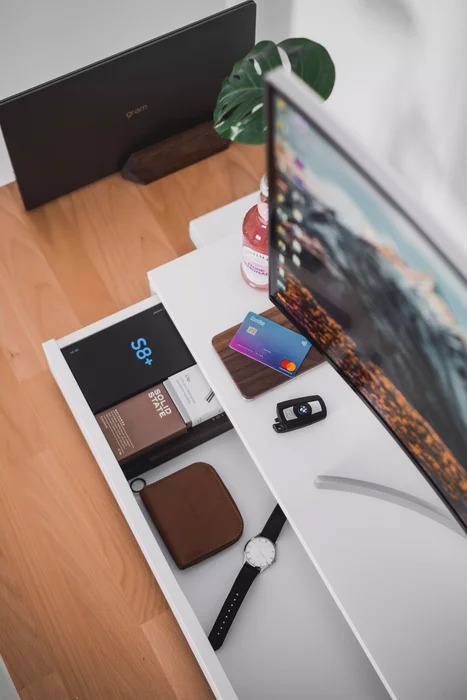27th January 2015
INVESTMENT/ PENSION FUND INERTIA … THE DISEASE THAT STILL AFFLICTS THE IRISH CONSUMER PSYCHE
The wounds of the worst recession ever in Ireland are still pretty raw and the experiences caused by it have tempered the minds of Irish consumers in many areas. The supermarket arena is one of the best illustrations of this as consumers finally realised they were paying over the odds for goods from the likes of Tesco and switched in their droves to value retailers like Aldi and Lidl who both increased their sales by over 14% in the last year alone ( source: Kantar). Similarly online shopping has grown exponentially with online sales in Ireland reaching €4.6bn in 2013 and forecast to reach €5.5bn in 2014. As Barclays Head of Retail & Wholesale, Richard Lowe, put it on a recent visit to Dublin..
“Although they seek more flexibility in delivery options, consumers are still very conscious of keeping prices low, with cost influencing consumer’s preference more than any other factor including quality of service.”
As this is the case why is it taking so long for Irish people to apply the same philosophy to their financial services products and providers? What really brought this home was a report in the Sunday Business Post on December 7th last which confirmed that the pension fund shared by the Dublin Airport Authority and Aer Lingus staff had paid a staggering €33k per week for investment advice over ten years. That is a whopping €17.2m for a fund that now has an €800m deficit and if that wasn’t bad enough…in 2013 alone €1.3m was paid to advisers which was the year they sold their prime Dublin property holdings at the nadir of the property market! It beggars belief how no one put their hand up be it management or the pension trustees and asked some hard questions very early on in terms of not only what were they getting for their bang for their buck with their advisers but why were they paying such a sizeable buck in the first place.
We see it all the time in our core business of online mortgage protection/life assurance where consumers are only now starting to wake up and smell the coffee in terms of realising that they can pay a lot less for their cover now then what they are typically paying their bank sponsored provider.
Assessing fund /portfolio performance is particularly relevant at this time of year when typically fund /investment managers do a bit of ‘window dressing’ to improve their funds’ performance as the crucial calendar year end looms.
Millions of euro of investors’ money is sitting in funds that simply are not cutting it as the poor Aer Lingus and DAA staff know only too well. These are funds run by highly paid investment managers who have consistently failed to beat stock market indices or indeed their own peers. Investor and in some cases, advisor, inertia has allowed these funds to continue to prosper in terms of funds under management whilst performing lamentably.
A good example of this is in the managed fund sector which is the ‘shop window’ for many investment managers. The theory here is that they actively manage their fund between the various asset classes mainly company shares, property, fixed interest stocks and cash. If shares are very attractive then the Fund will have a high percentage in shares and similarly if markets are going through bad times then the percentage of the fund in fixed interest securities and cash will be increased. We will look at the Pension Managed Fund sector in particular as it’s a very good barometer for Irish fund managers as these funds would be scrutinised closely by pension trustees and their advisers. One of the leading surveys is that carried out by Irish firm, Invesco.
Their survey of the Active Pension Managed Funds to December 31st last covers nine leading fund managers so to get some sense of how all are doing over a decent timeframe we will tie in with the DAA /Aer Lingus article timeframe and look at them over ten years as that gives any fund manager worth their salt plenty of time to deliver.
The average performance over the ten years to 31st December is 5.9% p.a. Of the nine investment managers a hefty five show returns below the average which reflects pretty poorly on their investment ability. The gulf between top and bottom is also pretty big with the top return being 7.3% p.a. (Standard Life) and the bottom one, Aviva, with 4.6% p.a – a difference of 2.7% p.a. This might not seem a lot but if you invested say €10k in both funds over the period – your Standard Life pension fund would be worth €20,230 versus €15,679 in your Aviva pot – a difference of nearly 30%.
Moreover this takes no account of the other side of this conundrum namely fees as if you end up in the same boat as seems to have happened to the DAA /Aer Lingus Staff and get both a poorly performing manager and one who charges high fees then the returns are even worse!
Investors, be they individuals or pension trustees need to ‘sweat’ their money or the money they are responsible for…as hard as they can and leaving it in underperforming funds is simply madness. Moreover this is happening right across the board so that it is not just pension investors but also personal investors that are suffering through not taking a close look at the performance of their funds and respective fund managers.
It is also worth bearing in mind the advice of that investment sage , Warren Buffett , who in his annual report to investors earlier this year advised investors to go for passive rather than active investment.
Writing about the instructions laid out in his will, Mr Buffett said his advice for the cash left to his wife was that 10 per cent should go to short-term government bonds and 90 per cent into a very low-cost S&P 500 index fund, adding that the long-term results from this policy would be superior to those attained by most investors, whether pension funds, institutions or individuals, that employed high-fee managers. Its wise advice from someone who really has delivered for investors.
In summary whether reviewing your investment fund for the New Year or thinking of committing new monies to a fund then make sure and scrutinise its track record. Whilst past performance is no guarantee of future performance it certainly helps in terms of getting a handle on the quality of the fund manager. We need to make sure the word ‘Inertia’ does not stay as an acronym for ‘Irish (people)Never Ever Relieve Their Investment Advisors / managers.
Peter O’Reilly Director Low.ie – We Go Lower
“Although they seek more flexibility in delivery options, consumers are still very conscious of keeping prices low, with cost influencing consumer’s preference more than any other factor including quality of service.”
As this is the case why is it taking so long for Irish people to apply the same philosophy to their financial services products and providers? What really brought this home was a report in the Sunday Business Post on December 7th last which confirmed that the pension fund shared by the Dublin Airport Authority and Aer Lingus staff had paid a staggering €33k per week for investment advice over ten years. That is a whopping €17.2m for a fund that now has an €800m deficit and if that wasn’t bad enough…in 2013 alone €1.3m was paid to advisers which was the year they sold their prime Dublin property holdings at the nadir of the property market! It beggars belief how no one put their hand up be it management or the pension trustees and asked some hard questions very early on in terms of not only what were they getting for their bang for their buck with their advisers but why were they paying such a sizeable buck in the first place.
We see it all the time in our core business of online mortgage protection/life assurance where consumers are only now starting to wake up and smell the coffee in terms of realising that they can pay a lot less for their cover now then what they are typically paying their bank sponsored provider.
Assessing fund /portfolio performance is particularly relevant at this time of year when typically fund /investment managers do a bit of ‘window dressing’ to improve their funds’ performance as the crucial calendar year end looms.
Millions of euro of investors’ money is sitting in funds that simply are not cutting it as the poor Aer Lingus and DAA staff know only too well. These are funds run by highly paid investment managers who have consistently failed to beat stock market indices or indeed their own peers. Investor and in some cases, advisor, inertia has allowed these funds to continue to prosper in terms of funds under management whilst performing lamentably.
A good example of this is in the managed fund sector which is the ‘shop window’ for many investment managers. The theory here is that they actively manage their fund between the various asset classes mainly company shares, property, fixed interest stocks and cash. If shares are very attractive then the Fund will have a high percentage in shares and similarly if markets are going through bad times then the percentage of the fund in fixed interest securities and cash will be increased. We will look at the Pension Managed Fund sector in particular as it’s a very good barometer for Irish fund managers as these funds would be scrutinised closely by pension trustees and their advisers. One of the leading surveys is that carried out by Irish firm, Invesco.
Their survey of the Active Pension Managed Funds to December 31st last covers nine leading fund managers so to get some sense of how all are doing over a decent timeframe we will tie in with the DAA /Aer Lingus article timeframe and look at them over ten years as that gives any fund manager worth their salt plenty of time to deliver.
The average performance over the ten years to 31st December is 5.9% p.a. Of the nine investment managers a hefty five show returns below the average which reflects pretty poorly on their investment ability. The gulf between top and bottom is also pretty big with the top return being 7.3% p.a. (Standard Life) and the bottom one, Aviva, with 4.6% p.a – a difference of 2.7% p.a. This might not seem a lot but if you invested say €10k in both funds over the period – your Standard Life pension fund would be worth €20,230 versus €15,679 in your Aviva pot – a difference of nearly 30%.
Moreover this takes no account of the other side of this conundrum namely fees as if you end up in the same boat as seems to have happened to the DAA /Aer Lingus Staff and get both a poorly performing manager and one who charges high fees then the returns are even worse!
Investors, be they individuals or pension trustees need to ‘sweat’ their money or the money they are responsible for…as hard as they can and leaving it in underperforming funds is simply madness. Moreover this is happening right across the board so that it is not just pension investors but also personal investors that are suffering through not taking a close look at the performance of their funds and respective fund managers.
It is also worth bearing in mind the advice of that investment sage , Warren Buffett , who in his annual report to investors earlier this year advised investors to go for passive rather than active investment.
Writing about the instructions laid out in his will, Mr Buffett said his advice for the cash left to his wife was that 10 per cent should go to short-term government bonds and 90 per cent into a very low-cost S&P 500 index fund, adding that the long-term results from this policy would be superior to those attained by most investors, whether pension funds, institutions or individuals, that employed high-fee managers. Its wise advice from someone who really has delivered for investors.
In summary whether reviewing your investment fund for the New Year or thinking of committing new monies to a fund then make sure and scrutinise its track record. Whilst past performance is no guarantee of future performance it certainly helps in terms of getting a handle on the quality of the fund manager. We need to make sure the word ‘Inertia’ does not stay as an acronym for ‘Irish (people)Never Ever Relieve Their Investment Advisors / managers.
Peter O’Reilly Director Low.ie – We Go Lower



